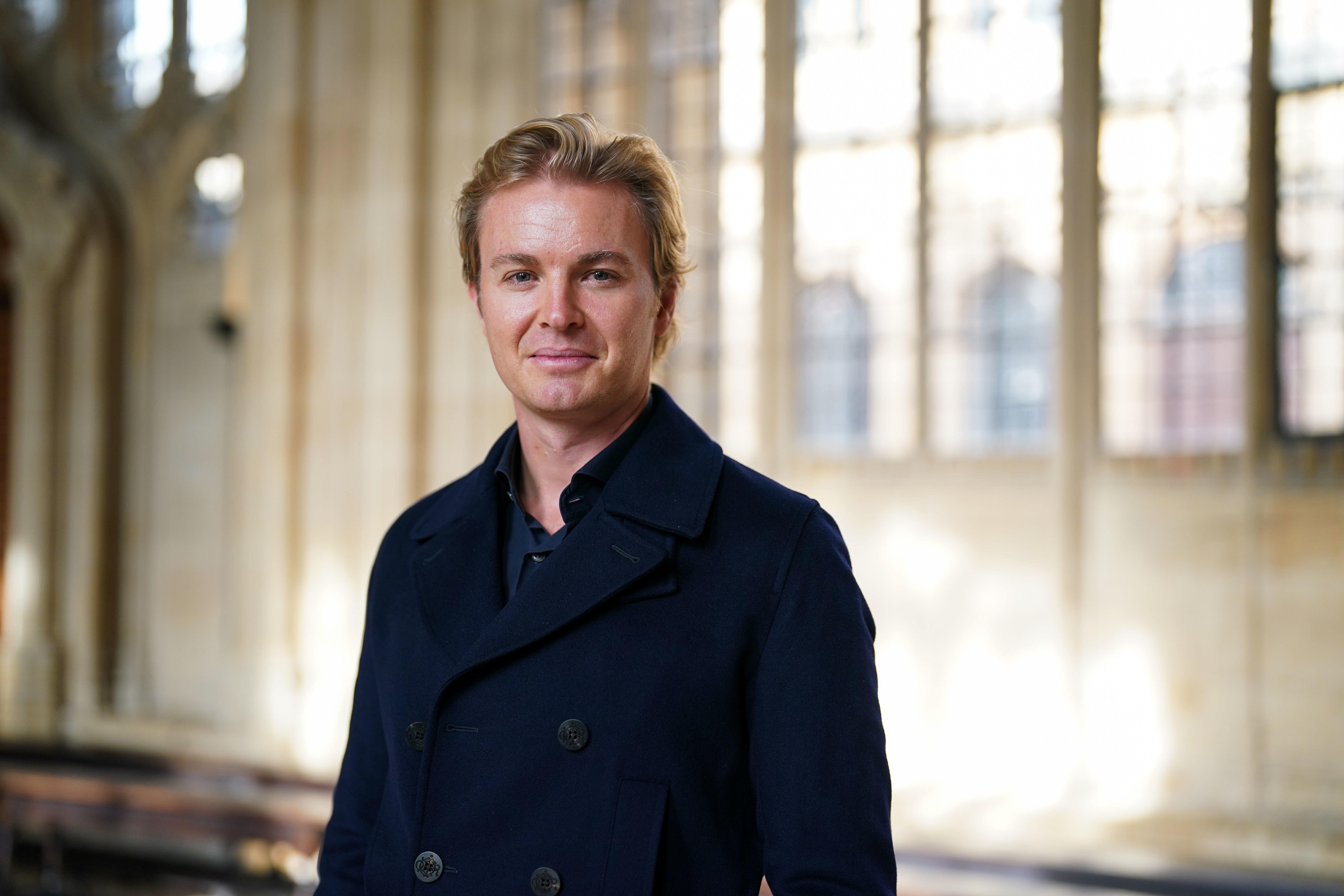‘Impossible’ to decarbonise F1 without alternative fuels, says Nico Rosberg
The retired champion now invests in technology for the emerging low-carbon economy.

Your support helps us to tell the story
From reproductive rights to climate change to Big Tech, The Independent is on the ground when the story is developing. Whether it's investigating the financials of Elon Musk's pro-Trump PAC or producing our latest documentary, 'The A Word', which shines a light on the American women fighting for reproductive rights, we know how important it is to parse out the facts from the messaging.
At such a critical moment in US history, we need reporters on the ground. Your donation allows us to keep sending journalists to speak to both sides of the story.
The Independent is trusted by Americans across the entire political spectrum. And unlike many other quality news outlets, we choose not to lock Americans out of our reporting and analysis with paywalls. We believe quality journalism should be available to everyone, paid for by those who can afford it.
Your support makes all the difference.It is “impossible” for F1 to decarbonise without the development of alternative fuels, former driver Nico Rosberg has said.
The sport is aiming to become net zero by 2030 and is pinning its hopes on developing “drop-in” fuels that can be used with existing vehicles.
New cars are fuelled using 90% regular and 10% ethanol, and F1 is working with Saudi Arabia’s national oil company Aramco to try to develop a low or zero carbon alternative that can supply 100% of the cars’ fuel source by 2026.
A recent report found that F1 produced around 256,000 tonnes of CO2 in 2019 – whereas the average UK car produces nearly 1.7 tonnes annually – though only 0.7% of this comes from the racing vehicles themselves.
The biggest challenge is the logistics, where they depend on the airline industry essentially
More than 70% of the sport’s emissions come from logistics and transport – the shipping and flying of people and equipment across the 23 annual grands prix races taking place on almost every continent.
Asked whether alternative fuels are necessary for F1’s decarbonisation, Mr Rosberg told the PA news agency: “It’s impossible without that ultimately, that’s a very important ingredient.
“F1 has a very ambitious target for 2030. What they need to do is make their races carbon neutral, so the way the fans arrive, all the logistics around that, the headquarters of the racing teams, the racing itself.
“The biggest challenge is the logistics, where they depend on the airline industry essentially. Also trucking, but trucking will be easier. It’s the airline industry that has the biggest challenge.”
Since retiring from F1 after his World Championship win at the age of 31, Mr Rosberg has turned his attention and fortunes towards low-carbon technologies that aim to decarbonise industries in the race to net zero.
Most recently he has been sponsoring graduates at Oxford University to support student research into removing carbon from the atmosphere, cleaning plastic from the oceans and developing alternative fuels for ships and planes.
He said he will also be supporting F1 with its decarbonisation aims but that his plans are too premature to go into any detail.
After touring the university’s Divinity School and Bodleian Library, which dates back to the 15th century, Mr Rosberg said: “I really wanted to contribute after racing, inspire my two young daughters, so this led me down this path.
“Also it’s a very unique time in the world now with potential for innovation here, technological innovation, to really have an impact.”
Varun Shankar, a DPhil engineering student and part of the one-year partnership between the Rosberg Climate Fellows Programme and Oxford University’s Sustainable Development Goals Impact Lab, said he wants to use his skills to help his home country of Zambia develop without relying on fossil fuels.
Whatever ship you build today would be running until 2053 so you can't say let's wait until 2050 to make that change
He said: “I think we are still on the path of economic growth but we need to do this whilst decarbonising.
“So it’s like how can we couple these two? And think about ways that you’re still growing economically but not dependent on fossil (fuels) but dependent on different renewable sources?
“I think the Global North has already successfully developed on that front, but we need to do it in a way that’s also decarbonised.”
His sponsored research aimed to test the feasibility of using alternative fuels for shipping, which he said contributes around 2.8% of global emissions.
He said: “The shipping sector is different to other sectors because the ship lasts for 25 to 30 years.
“So if you make a decision now it has to last until 2053. Whatever ship you build today would be running until 2053 so you can’t say let’s wait until 2050 to make that change.
“Whatever change you make now will impact how much you can reduce in 2050. I think that that narrative needs to really be understood.”